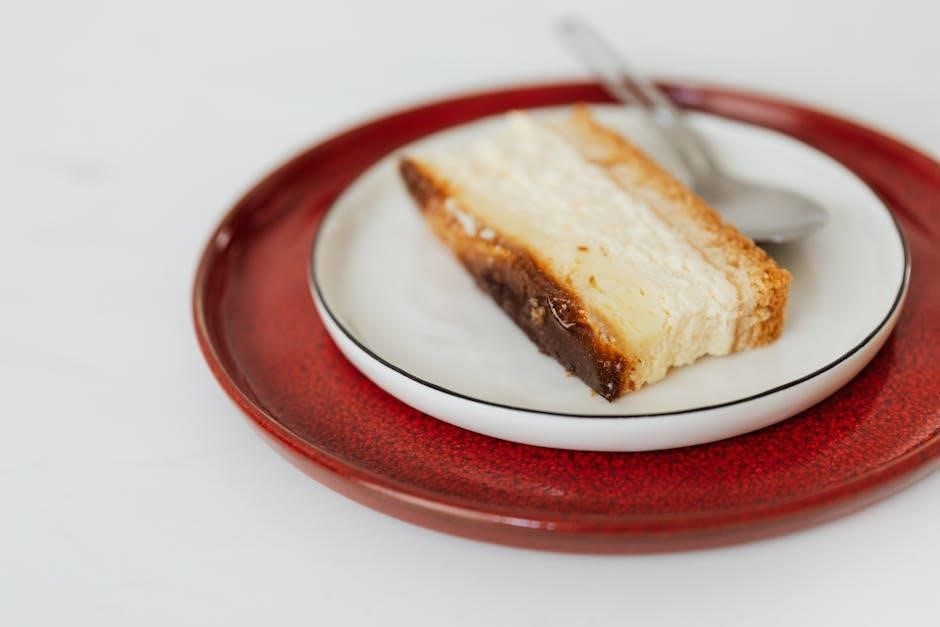1100 Calorie Meal Plan PDF: A Comprehensive Guide
Embark on a transformative journey with our 1100 Calorie Meal Plan PDF, your all-in-one resource for achieving your fitness aspirations. This comprehensive guide offers customizable plans, sample menus, and expert advice, empowering you to take control of your dietary intake and overall well-being, all in one convenient PDF.
The 1100 calorie diet is a very low-calorie diet (VLCD) designed for rapid weight loss, primarily aimed at small-framed women or individuals under specific medical supervision. It involves consuming approximately 1100 calories per day through carefully planned meals. This approach necessitates a meticulous understanding of macronutrient balance and mindful food choices to ensure nutritional adequacy.
Before embarking on this dietary regimen, it is crucial to understand its implications and potential risks. While it can lead to quick weight loss, it’s generally not suitable for long-term use without medical guidance. The 1100 calorie diet often requires supplementation to address potential nutrient deficiencies and mitigate adverse effects. It’s essential to consider this diet as a short-term strategy and not a sustainable lifestyle choice.
This guide provides comprehensive information on the 1100 calorie diet, including sample meal plans, recipes, and crucial considerations for safety and effectiveness. However, it’s important to emphasize that consulting with a healthcare professional or registered dietitian is paramount before initiating this or any restrictive diet, as individual needs and health conditions may vary significantly.

Understanding Calorie Needs and Suitability
Determining the appropriateness of an 1100 calorie diet hinges on a clear understanding of individual calorie needs and health status. Calorie requirements vary significantly based on factors such as age, sex, activity level, height, weight, and metabolic rate. Online calorie calculators can provide a general estimate, but a personalized assessment from a healthcare professional is recommended.
The 1100 calorie diet is generally considered suitable only for specific individuals, primarily small-framed women aiming for rapid weight loss or those under strict medical supervision for weight management. It is not recommended for men, pregnant or breastfeeding women, individuals with underlying health conditions, or those with a history of eating disorders.
Before considering such a restrictive diet, it’s crucial to evaluate potential risks and benefits. While it may lead to short-term weight loss, it can also result in nutrient deficiencies, fatigue, muscle loss, and metabolic slowdown. A balanced and sustainable approach to weight management, involving a moderate calorie deficit and regular exercise, is generally more effective and healthier in the long run. Always consult a doctor.
Customizable Meal Plan Generation
Crafting a personalized 1100 calorie meal plan requires careful consideration of individual preferences, dietary needs, and nutritional balance. Our customizable meal plan generator empowers you to design a plan that aligns with your specific goals and tastes. Start by selecting from a diverse range of healthy recipes, each with detailed macro breakdowns and calorie counts.
Utilize the swap and randomize features to create variety and prevent meal fatigue. Easily exchange meals based on your cravings or available ingredients. Adjust portion sizes to fine-tune your calorie intake and ensure you stay within your desired range. Prioritize nutrient-dense foods, focusing on lean proteins, fruits, vegetables, and whole grains.
Consider incorporating intermittent fasting strategies, such as the 16/8 method, to further enhance your weight loss efforts. Remember to track your progress and make adjustments as needed. With our customizable meal plan generator, you can create a sustainable and enjoyable 1100 calorie diet that supports your health and fitness objectives. Always consult with a registered dietitian.
Sample 7-Day 1100 Calorie Meal Plan
To provide a practical example, here’s a sample 7-day 1100 calorie meal plan designed to offer variety and nutritional balance. This plan is a starting point and can be customized to suit individual preferences and dietary requirements. Remember to consult with a healthcare professional or registered dietitian before making significant changes to your diet.
Each day includes three main meals and two snacks, carefully portioned to fit within the 1100 calorie limit. The meals are designed to be easy to prepare and incorporate readily available ingredients. The plan emphasizes lean proteins, fruits, vegetables, and whole grains to ensure adequate nutrient intake.
Pay close attention to the macronutrient breakdown of each meal to ensure you’re meeting your individual needs. Stay hydrated by drinking plenty of water throughout the day. This sample meal plan provides a framework for creating your own personalized 1100 calorie diet; Feel free to swap out meals, adjust portion sizes, and incorporate your favorite healthy foods.
Remember that consistency is key to achieving your weight loss goals.

Macronutrient Breakdown and Recipes
Understanding the macronutrient composition of your meals is crucial for optimizing your 1100 calorie diet. This section provides insights into the ideal balance of protein, carbohydrates, and fats, along with delicious and easy-to-follow recipes that align with your dietary goals.
Aim for a macronutrient ratio that supports satiety, muscle maintenance, and overall health. A common approach is to distribute calories as follows: 40% carbohydrates, 30% protein, and 30% fats. However, individual needs may vary based on activity level and other factors.
Explore a collection of recipes designed to be both nutritious and satisfying. Each recipe includes a detailed macronutrient breakdown, allowing you to track your intake accurately. Prioritize lean protein sources such as chicken breast, fish, and beans. Opt for complex carbohydrates like whole grains and vegetables. Choose healthy fats from sources like avocados, nuts, and olive oil.
Remember to adjust portion sizes to meet your individual calorie and macronutrient targets. Cooking at home allows you to control ingredients and portion sizes, making it easier to adhere to your 1100 calorie meal plan.
Intermittent Fasting and 1100 Calories
Combining intermittent fasting (IF) with an 1100 calorie diet can be a strategic approach for weight management, but it requires careful planning and consideration. Intermittent fasting involves cycling between periods of eating and voluntary fasting on a regular schedule.
One popular IF method is the 16/8 method, where you fast for 16 hours and have an 8-hour eating window. When following an 1100 calorie diet with IF, it’s crucial to ensure you’re consuming nutrient-dense foods during your eating window to meet your nutritional needs.
Prioritize protein, healthy fats, and complex carbohydrates to stay satisfied and energized. Divide your 1100 calories into 2-3 meals during your eating window, focusing on balanced meals.
It’s essential to monitor your energy levels and overall well-being when combining IF with a low-calorie diet. Some individuals may experience fatigue or increased hunger. If you have any underlying health conditions or are new to intermittent fasting, consult with a healthcare professional or registered dietitian before starting.
Remember that safety and sustainability are paramount. This approach isn’t suitable for everyone, and individual responses can vary significantly.
Low-Fat Considerations in the 1100 Calorie Diet
When following an 1100 calorie diet, carefully consider the role of fats. While reducing overall calorie intake is crucial, severely restricting fat can have negative consequences. Fats are essential for hormone production, nutrient absorption, and overall satiety.
Opt for healthy fats from sources like avocados, nuts, seeds, and olive oil. These fats provide essential fatty acids and contribute to feelings of fullness, making it easier to stick to the diet.
Avoid trans fats and limit saturated fats from processed foods and fatty meats. A balanced approach to fat intake is crucial for maintaining health and well-being while on a calorie-restricted diet.
Monitor your energy levels and overall health, and adjust your fat intake as needed. If you experience persistent fatigue or other negative symptoms, consult with a healthcare professional or registered dietitian. Prioritize nutrient-dense foods to ensure you’re meeting your nutritional needs while keeping fat intake in check. Remember, a sustainable and healthy approach to weight loss involves balance and moderation.
Ensure you’re getting enough essential fatty acids for optimal health. This approach isn’t suitable for everyone, and individual responses can vary significantly.
Mediterranean Diet Adaptation at 1100 Calories
Adapting the Mediterranean diet to an 1100 calorie meal plan requires careful planning and portion control. The Mediterranean diet, known for its health benefits, emphasizes fruits, vegetables, whole grains, lean proteins, and healthy fats.
To fit within the 1100 calorie limit, focus on nutrient-dense, low-calorie options. Prioritize non-starchy vegetables, such as leafy greens, tomatoes, and cucumbers, which provide essential vitamins and minerals with minimal calories.
Choose lean protein sources like fish, poultry, and legumes. Incorporate small portions of whole grains like quinoa, brown rice, or whole-wheat pasta. Use olive oil sparingly for cooking and dressings.
Limit processed foods, sugary drinks, and unhealthy fats. Be mindful of portion sizes to ensure you stay within your calorie goal. Consider using a food scale and measuring cups to accurately track your intake.
A sample Mediterranean meal plan at 1100 calories might include a breakfast of Greek yogurt with berries and nuts, a lunch of a large salad with grilled chicken or fish, and a dinner of lentil soup with whole-grain bread. Snacks could include fruits, vegetables, or a small handful of nuts. Remember to drink plenty of water throughout the day.
Importance of Hydration and Fluid Intake

Maintaining adequate hydration is crucial, especially when following a restricted calorie diet like an 1100 calorie meal plan. Water plays a vital role in numerous bodily functions, including nutrient transport, temperature regulation, and waste removal. Dehydration can lead to fatigue, headaches, and impaired cognitive function.
When calorie intake is limited, the body may lose water more readily, making it even more important to prioritize fluid intake. Aim for at least 7-8 glasses of water per day. You can also incorporate other hydrating beverages such as herbal teas, unsweetened iced tea, and infused water.
Be mindful of sugary drinks, as they can add unnecessary calories and hinder weight loss efforts. Avoid or limit consumption of sodas, juices, and sweetened beverages.
Certain fruits and vegetables, such as watermelon, cucumber, and spinach, have high water content and can contribute to your daily fluid intake. Incorporate these into your meals and snacks.
Listen to your body’s cues and drink water throughout the day, especially before, during, and after physical activity. Proper hydration supports overall health and well-being, making it an essential component of any weight loss plan.

Potential Risks and Consultation with a Doctor
Embarking on an 1100 calorie diet carries inherent risks, primarily due to its restrictive nature. This level of caloric intake may not provide sufficient energy and nutrients for optimal bodily function, potentially leading to nutrient deficiencies, fatigue, and muscle loss. Before initiating such a diet, consulting with a doctor or registered dietitian is paramount.
A healthcare professional can assess your individual needs, medical history, and current health status to determine if an 1100 calorie diet is appropriate and safe for you; They can also help you identify any potential risks or contraindications based on your specific circumstances.
Individuals with pre-existing medical conditions, such as diabetes, heart disease, or eating disorders, should exercise extreme caution and seek medical advice before considering this type of diet. Pregnant or breastfeeding women should not follow an 1100 calorie diet, as it can compromise their health and the health of their baby.
Furthermore, prolonged restriction can lead to metabolic slowdown and psychological distress; If you experience any adverse effects, such as dizziness, weakness, or mood changes, discontinue the diet and seek medical attention immediately. Consulting with a doctor ensures a safe and personalized approach to weight loss.

No Responses